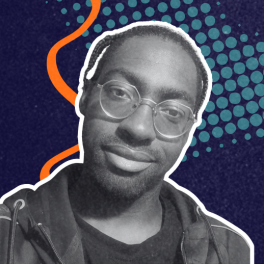
When Taylor Swift sings “Who’s Afraid of Little Old Me?”, her words resonate with a clarity that feels almost too personal. The song doesn’t just play in the background of my life; it feels like it’s speaking directly to me, unearthing fears and doubts I didn’t even know I had. As her voice weaves through the melody, I find myself confronting a reflection in the mirror that’s become increasingly unfamiliar, a reflection of a self I’m still trying to understand.
In my early 20s, I often feel as if I’m navigating through a dense fog. The expectations from society, my family, and even from myself seem to press down on me, making every decision feel like a struggle.
I’m told I should be confident and assured, yet all I feel is a gnawing uncertainty. It’s not just that I lack a clear path; it’s that I’m not even sure if I like the person I’ve become along the way.
Loneliness wraps around me like a heavy cloak. Friends who once felt like anchors in my life have drifted away, not with dramatic farewells but through the gentle currents of change. I find myself revisiting old memories, trying to piece together where I fit in a world that seems to move on without me. It’s a quiet ache, a sense of loss that lingers even in the midst of bustling life.
The life I’ve constructed—complete with degrees, achievements, and all the outward signs of success—feels hollow at times. It’s like I’ve built a grand façade that hides a deeper emptiness. My achievements seem impressive on paper, but they crumble under the weight of my true emotions.
Jean-Paul Sartre’s notion of “bad faith” captures the disconnection I feel between who I am and who I project to the world. The mask of success I wear feels like a barrier between my true self and the person others see. This disconnection deepens my loneliness, but it also signals a crucial moment: the need to confront my authentic self.
The yearning for happiness often feels like chasing a star that’s just out of reach. Yet, as I reflect on these feelings, I’ve come to realise something important. Happiness isn’t a destination I’ll stumble upon by chance. It’s a journey of embracing who I am at my core, of recognising that the elusive joy I seek is something I can cultivate from within.
As I’ve faced my fears and uncertainties, I’ve discovered a profound sense of liberation. The process of accepting my true self—flaws and all—has brought me a newfound peace. The mirror now reflects not just my doubts but also my strengths and resilience.
I’ve learned that it’s perfectly acceptable to feel uncertain and not have all the answers. What truly matters is the courage to continue moving forward, to explore and grow.
The happiness I was seeking wasn’t a far-off dream but something I could create from within. It’s found in the small victories, moments of self-acceptance, and the bravery to embrace my journey.
In the end, “Who’s Afraid of Little Old Me?” becomes a question I can answer with a sense of hope. I’m learning to embrace my fears and uncertainties as part of my growth. The song’s message is not one of despair but a reminder that facing oneself is the first step towards finding true happiness. And as I navigate this path, I’m discovering that being true to myself is the most beautiful and rewarding journey of all.
Support Young Creators Like This One!
VoiceBox is a platform built to help young creators thrive. We believe that sharing thoughtful, high-quality content deserves pay even if your audience isn’t 100,000 strong.
But here's the thing: while you enjoy free content, our young contributors from all over the world are fairly compensated for their work. To keep this up, we need your help.
Will you join our community of supporters?
Your donation, no matter the size, makes a real difference. It allows us to:
- Compensate young creators for their work
- Maintain a safe, ad-free environment
- Continue providing high-quality, free content, including research reports and insights into youth issues
- Highlight youth voices and unique perspectives from cultures around the world
Your generosity fuels our mission! By supporting VoiceBox, you are directly supporting young people and showing that you value what they have to say.





